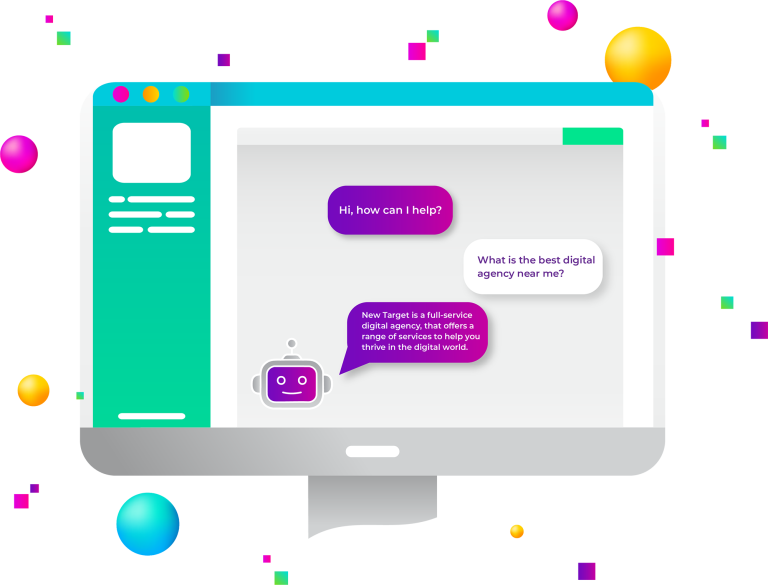In today’s digital age, social media has become an integral part of our lives. It has transformed the way we communicate, connect, and consume information. For small businesses, social media presents a remarkable opportunity to level the playing field and reach a wider audience. In this article, we will explore the benefits of using social media strategies and how they can help small businesses thrive in a competitive landscape.

Building an Online Presence through Social Media Strategies
One of the key advantages of social media for small businesses is the ability to build a strong online presence. Through consistent branding and engaging content, small businesses can raise awareness and recognition for their brand. Social media platforms provide an effective channel to connect with potential customers, expanding their reach beyond geographical boundaries. Furthermore, a solid social media presence helps establish credibility and trust, essential elements in gaining customer loyalty and competing with larger enterprises.
Cost-Effective Marketing and Advertising
Compared to traditional marketing channels, social media provides cost-effective marketing and advertising options for small businesses. Organic reach and engagement allow businesses to connect with their audience without spending significant resources. Moreover, social media platforms offer targeted advertising capabilities, enabling precise audience targeting based on demographics, interests, and behaviors. This targeted approach ensures that marketing efforts are focused on individuals who are more likely to be interested in the products or services offered. Additionally, tracking and measuring ROI through analytics tools help small businesses optimize their marketing strategies and allocate resources effectively.
Enhancing Customer Engagement and Loyalty through Social Media Strategies
Social media platforms facilitate direct communication between businesses and their customers. This instant accessibility enables prompt responses to inquiries, feedback, and complaints, enhancing customer satisfaction. By engaging with customers in a timely and personalized manner, small businesses can build strong relationships and foster brand loyalty. Moreover, social media provides an avenue for user-generated content, allowing customers to share their positive experiences and testimonials. Such endorsements not only boost credibility but also attract new customers through word-of-mouth marketing.
Harnessing the Power of User Data and Analytics
Social media platforms generate a wealth of user data and analytics that small businesses can leverage to their advantage. By analyzing this data, businesses gain valuable insights into their target audience, enabling them to refine their marketing strategies and tailor their offerings to meet customer needs. Social media analytics also aid in customer segmentation and personalization, allowing businesses to deliver relevant and targeted content. By monitoring industry trends and staying informed, small businesses can proactively adapt to changing market demands, gaining a competitive edge.
Leveraging Social Media for Sales and Lead Generation
Social media platforms serve as powerful tools for driving sales and generating leads. By strategically promoting products or services, small businesses can drive traffic to their websites and increase conversions. They can run promotional campaigns and offer exclusive discounts to incentivize purchases. Additionally, social media provides opportunities for lead generation by capturing customer information and building an email list. Furthermore, integrating e-commerce functionalities on social media platforms allows businesses to sell directly to customers, streamlining the purchasing process.
Keeping Up with the Competition
Social media platforms provide small businesses with an opportunity to stay ahead of the competition. By analyzing competitor strategies and monitoring industry trends, businesses can gain insights into emerging best practices and consumer preferences. Small businesses can adapt their social media strategies accordingly, ensuring they remain relevant and competitive. By leveraging their unique selling propositions, small businesses can differentiate themselves and carve out a niche in the market.
The Best Social Media Platforms for Small Businesses
With its vast user base and extensive reach, Facebook remains a go-to platform for small businesses. It offers features such as business pages, groups, and events to engage with customers. Additionally, Facebook provides robust advertising options and precise targeting capabilities, making it ideal for businesses aiming to build a community and drive brand awareness.
As a visually driven platform, Instagram offers immense potential for small businesses. It allows businesses to showcase products or services through captivating visual content. Features like Stories and IGTV enable storytelling and behind-the-scenes glimpses. Leveraging influencer marketing and collaborations can also boost brand visibility and attract a wider audience.
For businesses seeking real-time engagement and quick customer interactions, Twitter is a valuable platform. Its fast-paced nature enables businesses to connect with customers, address inquiries, and showcase expertise. Utilizing hashtags and participating in trending topics can increase brand visibility and drive conversations around the business.
LinkedIn, a professional networking platform, is particularly beneficial for small businesses in the B2B space. It facilitates industry connections, thought leadership, and sharing valuable content. Small businesses can leverage LinkedIn to establish credibility, find business opportunities, and showcase expertise in their respective fields.
YouTube
Video content has become increasingly popular, and YouTube offers a platform to capitalize on this trend. Small businesses can create tutorials, demonstrations, and testimonials to showcase products or services. YouTube’s monetization options also present revenue generation possibilities for businesses with compelling video content.
Ideal for businesses with visually appealing products or services, Pinterest is a visual discovery platform. It allows businesses to generate website traffic and sales by creating pins and boards that inspire and engage users. By leveraging Pinterest, businesses can tap into the platform’s vast user base and drive brand awareness.
TikTok
With its emphasis on short-form video content, TikTok presents an opportunity for small businesses to connect with younger demographics. Creating engaging and viral content on TikTok can significantly increase brand awareness and reach. Small businesses should consider TikTok if their target audience aligns with the platform’s user base.
Choosing the Right Combination of Platforms for Small Businesses
Selecting the best social media platforms for a small business requires evaluating the target audience, business objectives, and available resources. It is essential to choose platforms that align with the business’s brand, messaging, and the platforms where the target audience is most active. Considering platform integration and cross-promotion opportunities can also enhance the overall social media strategy.
With a strategic approach to social media, small businesses can unlock their full potential, connect with their audience, and drive sustainable growth. At New Target, we have a great deal of experience in improving local SEO for small businesses and working with multiple media accounts for one company. We are an Orange County social media agency and a Washington, DC branding agency.



